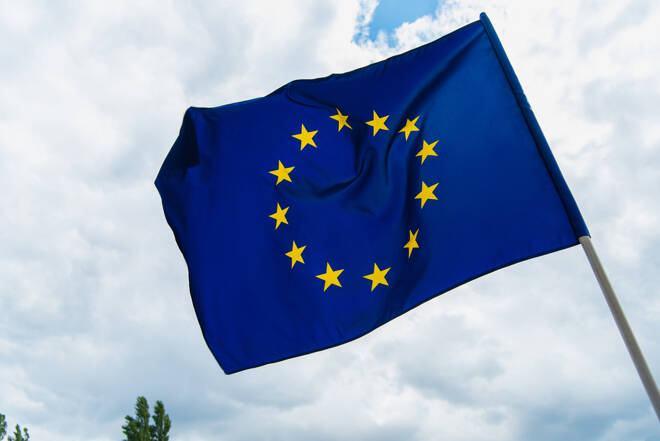Advertisement
Advertisement
German Economy Shrinks by More Than Expected in Q4
By:
Stats from Germany disappointed today, with consumer confidence up modestly and the German economy weaker than previously expected.
It was a busy start to the European session. The German economy was in the spotlight. On the economic data front, second estimate GDP numbers and consumer sentiment figures for March drew interest.
The German economy contracted 0.4% in Q4, down from a prelim 0.2% contraction. In Q3, the economy expanded by 0.5%. Year-over-year, the German economy grew by 0.3% versus 1.3% in Q3.
German consumer sentiment figures also disappointed, with the ECB looking for a marked pickup in sentiment to support consumption and the more optimistic economic outlook.
The GfK German Consumer Climate Indicator rose from -33.8 to -30.5 in March versus a forecasted -30.4.
According to the February survey,
- Economic and income expectations improved significantly in February, while the propensity to buy indicator dragged on the March consumer sentiment forecast.
- The income expectations indicator increased by 4.9 points to -27.3, marking a fifth consecutive monthly increase.
- Economic expectations followed a similar trend, rising by 6.6 points to +6.0 points, marking a fourth consecutive monthly increase.
- Significantly, the economic expectations moved above the long-term average of about zero for the first time since the start of the Ukraine war. The income expectations indicator has risen 40 points since a September 2022 all-time low.
- The propensity to buy indicator rose by a modest 1.4 points to -17.3 points. Elevated inflation will continue to pressure the consumer propensity to buy.
ECB Outlook
With the ECB set on delivering a 50-basis point interest rate hike in March, the numbers are unlikely to influence the March monetary policy decision. However, trends will dictate the ECB policy outlook beyond March.
In the latest ECB Economic Bulletin, the ECB noted that rising wage growth and declining energy price inflation should ease the loss of purchasing power and support consumption. Consumer confidence would need to improve to support the ECB’s outlook on consumption.
After the latest round of euro area stats, investors need to monitor ECB member speeches. ECB President Lagarde and Mr. Panetta will attend the G20 Finance Ministers and Central Bank Governors meeting. We expect comments from the G20 to draw plenty of interest.
EUR/USD Shows Sensitivity to Weak German Stats
Ahead of the German GDP and consumer climate figures, the day ahead for the EUR/USD fell to an early low of $1.05920 before rising to a high of $1.06143.
However, in response to the numbers from German, the EUR/USD fell from $1.05988 to a low of $1.05884.
At the time of writing, the EUR/USD was down 0.03% to $1.05921.
Next Up
French consumer sentiment numbers from France are due out shortly. However, barring a marked deterioration in consumer confidence, the numbers should have a muted impact on the EUR/USD. The market focus will be on the G20 and the US economic calendar.
It is a busy day on the US economic calendar. Personal income, spending, and inflation will be in focus. An unexpected rise in the Core PCE Price Index would fuel bets of a more hawkish Fed. Economists forecast the Core PCE Price Index to rise by 4.3% year-over-year in January. The Index was up 4.4% in December.
Later in the session, consumer sentiment and Fed chatter will also draw interest. FOMC member Loretta Mester will deliver a post-stats speech.
About the Author
Bob Masonauthor
With over 28 years of experience in the financial industry, Bob has worked with various global rating agencies and multinational banks. Currently he is covering currencies, commodities, alternative asset classes and global equities, focusing mostly on European and Asian markets.
Advertisement
